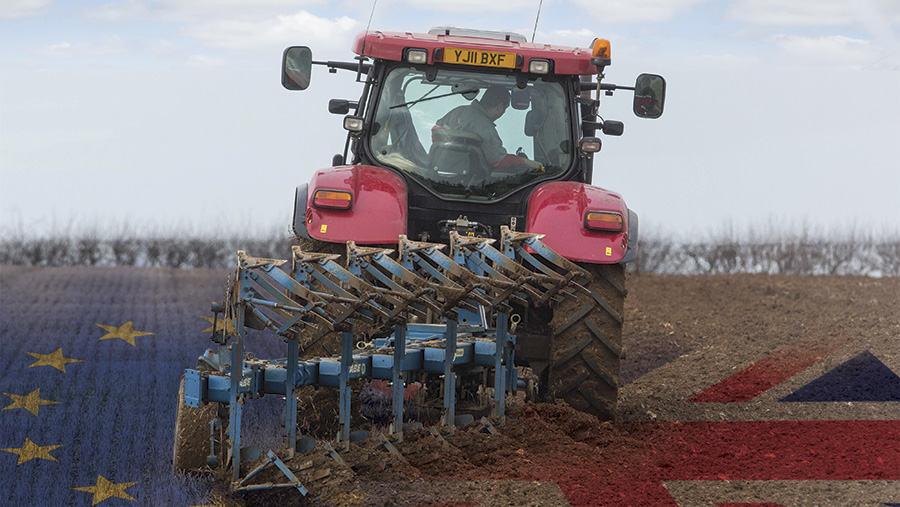7 principles to shape post-Brexit farm policy
 © Tim Scrivener and ING
© Tim Scrivener and ING The NFU has agreed seven principles it says must shape domestic agricultural policy when the UK prepares leaves the European Union.
The principles were agreed following an extraordinary meeting of the union’s 92-strong ruling council in London on Friday (1 July).
NFU president Meurig Raymond said the “biggest farming consultation for a generation” would now be launched as the union sought the views of its 55,000 members.
See also: George Eustice sets out British farming policy principles
The NFU is expected to spend the summer consulting farmers before publishing a more detailed document that fleshes out what it believes agricultural policy should look like for England and Wales.
The seven agreed principles are:
- The best possible access to markets in the rest of Europe
- The continuation of 50+ trade agreements with countries in the rest of the world
- A ban on imports produced to lower standards than in the UK
- A student agricultural workers scheme – open to students from around the world
- Support to farmers on a par with support given to farmers in the EU
- A rural development policy which focuses on enhancing competitiveness
- Regulation that is proportionate and based on sound science
Mr Raymond said the government must not ignore the economic importance of the farming sector, which was the bedrock of the UK’s £108bn food and drink industry.
“NFU council has today agreed the principles of a domestic farming policy which will now form the basis of the biggest farming consultation in England and Wales for a generation,” he said.
“There are lots of uncertainties for farming – trade agreements, labour, financial support, legislation are all up in the air – but the NFU is committed to providing this industry with leadership.”
Mr Raymond said the NFU would consult its all its members “in every sector, in every county” to ensure that they had a say in shaping the future of farming.
“I urge all NFU members to get involved in this consultation over the coming months and that non-members should join the NFU to ensure their voice is heard,” he said.
“With this consultation, we can be sure that the policy we push for will have the backing of the farming sector at large.”
The contribution of the country’s farming and food industry to the economy and to food security should be taken “extremely seriously” by the government, said Mr Raymond.
“We need a policy that ensures a profitable, productive and sustainable future for British farming – the NFU’s influence, with the backing of its membership, is paramount in this.”
